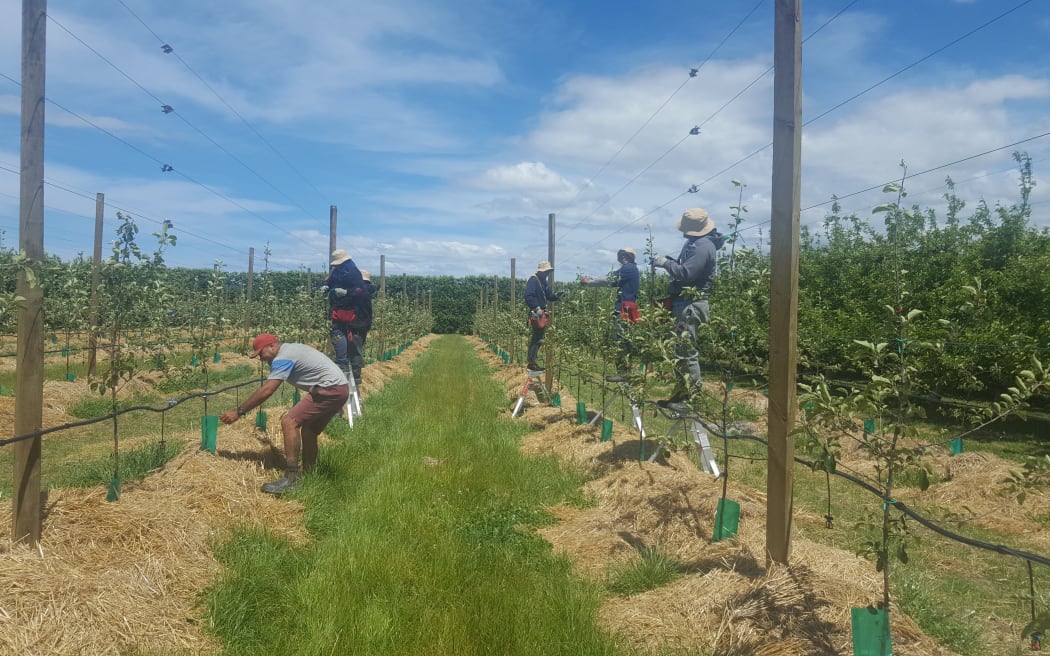
RSE workers from Samoa working in Bostock orchard, Hastings. Photo: RNZ / Anusha Bradley
Recognised seasonal employment (RSE) workers are being "subjected to flagrant breaches of their minimum entitlements", New Zealand Council of Trade Unions says.
A group of seasonal workers from the Solomon Islands have taken their former employer to court after wage deductions some weeks reduced their pay packet to zero.
The New Zealand Herald first reported that court documents showed money was taken out for insurance, wet weather gear, storage and even missing kitchen equipment from their hostel.
NZ Council of Trade Unions acting president Rachel Mackintosh told RNZ Pacific the people taking part in the scheme are vulnerable to exploitation.
"Often they lack the resources to go to court, they're locked into employment by their visas, they don't have unions, often don't speak English and they're completely open to having their legal entitlements trampled by employers who just count on them not being able to raise any issues," Mackintosh said.
The case, which is currently before the Employment Court, originated in 2020 and involves three Solomon Islanders who worked for Pick Hawke's Bay in the 2018-2019 season and some of the years on either side.
Horticulture New Zealand was granted intervener status by the Employment Court in February.
It means the organisation can be heard during the court case but cannot produce evidence, cross-examine witnesses or seek costs from any party.
Horticulture New Zealand applied leave to intervene on the grounds that 150 of its members participate in the RSE scheme and would be affected by the issues in the case.
The human rights commissioner and the Council of Trade Unions had also been given permission to become interveners.
Mackintosh said the case exposes a serious issue and workers having their entire pay docked "speaks to the outrageousness of the situation".
She said RSE workers needing to pay for items such as wet weather gear does happen.
"It's against the agreements to recruit the employers have signed.
"In the case of wet weather gear that's against the health and safety legislation in New Zealand, where employers are required to provide that kind of gear.
"The employers have said that they'll act within the law and then they do this anyway, any scheme where somebody can work all week and not get paid for it is clearly a scheme that has exploitation at its core."
Mackintosh said workers can have expenses deducted if it is for a normal part of their lives.
Any proposed deductions have to be submitted to immigration New Zealand before being put into effect, she said.


